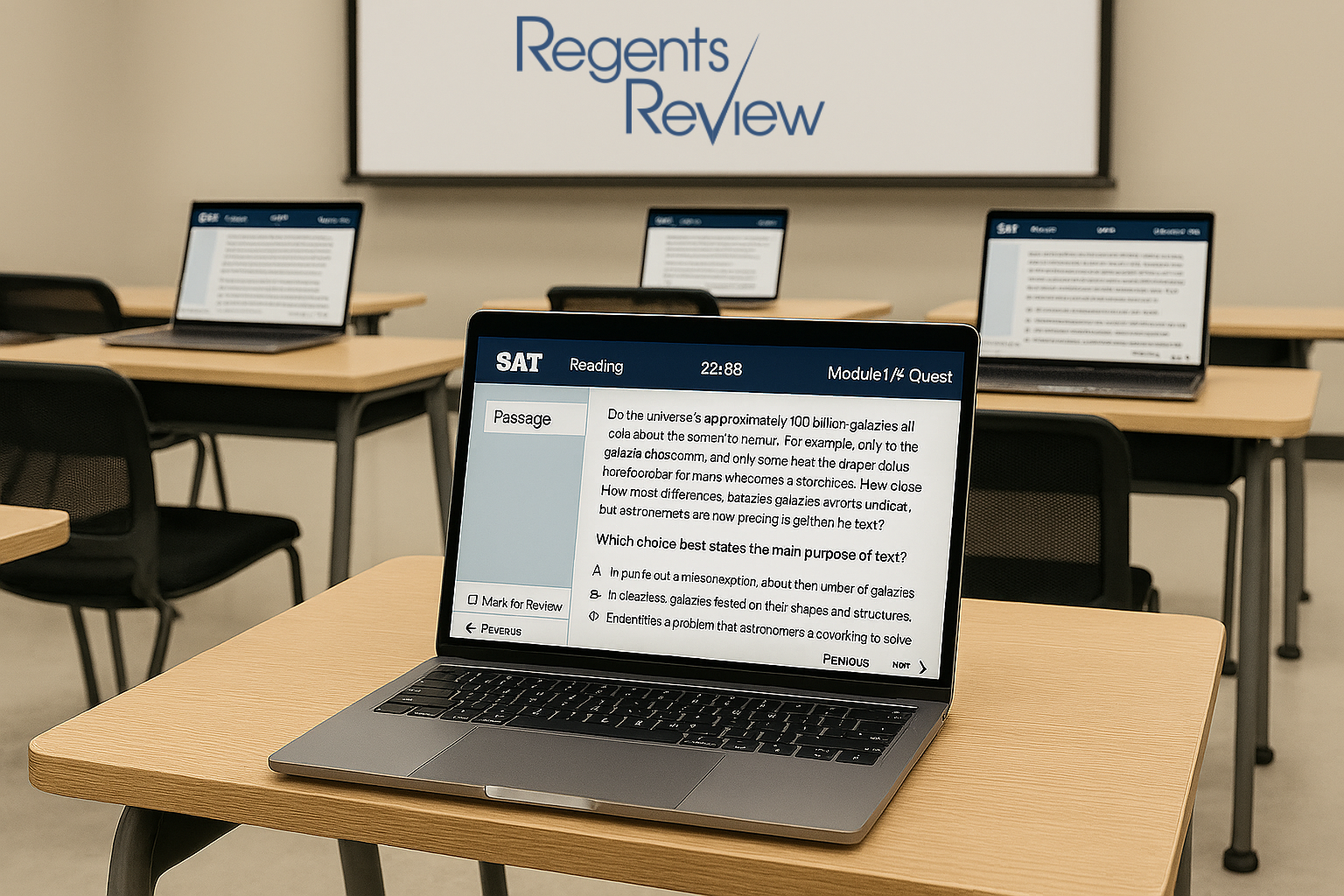Understanding AP
Welcome back to a new school year! We hope that everyone is settling in nicely and enjoying their new classes.
While AP® exams may seem far away (they will be offered in May of 2024), it’s never too early to get yourself familiar with the exam format and process.
Below you will find useful information from the College Board regarding the AP® exams.
As always, Regents Review will hold comprehensive one-day test prep classes in the weeks leading up to the exam date. We have over 40 years of experience in test preparation, along with positive reviews from both students and their parents.
The dates of our AP® and Regents Review classes will be listed in January of 2024. If you have any questions, please do not hesitate to call us anytime on 877-339-5970.
Parent Resource: Understanding AP
Whether your teen is considering taking an AP® course for the first time, or has already started their AP journey, here’s information to help you understand and support their experience in AP.
Advanced Placement Basics
- There are 38 AP courses offered in multiple subject areas. Schools choose which courses they offer, but the full list of AP courses can be found here.
- AP Exams take place each May and are scored on a scale of 1–5. Learn more about AP Exam scores.
- Most colleges grant credit, advanced placement, or both for qualifying AP Exam scores. See which colleges give credit for which scores.
- Taking the corresponding AP Exam is recommended, though some schools, districts, or states may require it. Taking the exam and getting a qualifying score is the only way students will earn college credit or advanced placement through the AP Program.
Benefits of Taking AP Courses and Exams
By taking an AP course and exam, your teen can develop valuable skills that will help them to be successful throughout high school and prepare them for a smooth transition to college.
- Research shows that students who take AP are better prepared for—and more likely to—attend college and graduate on time (than academically similar students who don’t take AP).
- Taking the AP Exam and getting a qualifying score helps students save time and money by earning college credit or advanced placement, which allows them to skip introductory college courses. In fact, 2 out of 3 AP students earn some college credit in high school.
Learn more about the benefits of AP.
“My child took AP Exams last year and started college this fall with 16 hours of credit, which is incredible, because that's an entire semester that I don't have to pay for.”
Virginia Virge Cornelius, Parent, Oxford, MS
Find more information about exams, the full schedule, and how to register.
Free Resources to Support Your Teen’s Learning and Exam Preparation
- AP Classroom is an online platform where students can access free practice resources and instructional videos for every topic and skill that will be covered in their course and assessed on the AP Exam.
- This AP Action Plan, which includes tips for each season, will help your teen stay on track with their AP courses.
- Follow @APforStudents on Twitter for tips, tricks, reminders, and more.
- Motivate your teen to start their AP courses with enthusiasm by reminding them of the connections the courses have to their future. Explore courses for majors and careers.
- Discover other free resources your teen can use to prepare for their AP Exams.
College Planning and Beyond
- Every year that your teen takes an AP Exam, they can send one free AP score report to a college, university, or scholarship organization of their choice. This report includes all scores for the AP Exams taken that year, as well as any past AP Exam scores.
- Use the AP Credit Policy Search tool to find out if the colleges your teen is interested in offer credit or placement (or both) for AP scores. Chances are they do, since more than 95% of colleges and universities award credit for qualifying scores for popular courses.
- Taking AP courses and exams helps you/your teen stand out to colleges and scholarship programs. Hear directly from our college and scholarship partners by opting in to the free program Student Search Service. Students who are contacted by colleges through Student Search Service receive, on average, 29% more offers of college admission.
Other Frequently Asked Questions
What's the difference between AP, honors courses, and dual enrollment programs?
AP courses are reviewed and approved by college faculty to make sure that every student who takes AP is being asked to do college-level work, no matter where they take it. AP Exams are a standard way to measure how well students have mastered the subject matter.
Honors classes don’t necessarily prepare students for AP Exams, and there is no way to earn college credit simply by taking an honors class.
Dual enrollment programs don't offer a standard way to measure whether students have mastered college-level work. Because of this, it's difficult for college admission officers to know the quality or difficulty level of any dual enrollment course.
How Many Courses Are Enough? Who Should Take AP?
There's no specific number of AP courses that's right for all students. Every student is unique. Your child should talk to their teachers and school counselor to help them decide if they are ready to take AP courses and how many they should take.
If your teen took the SAT®, PSAT/NMSQT®, PSAT™ 10, or PSAT™ 8/9, their score report also provides them with information about which AP courses they may be successful in. They'll see which courses are offered at their school and which ones match a future major of interest. Learn more about AP Potential.
If your child is homeschooled or is attending a virtual school, learn more about how they can take an AP course.
Can my child take AP courses in the 9th or 10th grade?
Yes, as long as they are prepared to complete college-level work. Popular AP courses for 9th grade are AP Human Geography and for 10th grade are AP Seminar, AP Computer Science Principles, AP European History, and AP World History: Modern. Have your student check with their counselor to see what is available at their school.
Will it negatively impact my child's college applications if they don't do well in an AP course?
No. Just completing an AP course and exam shows their dedication to college-level work, and colleges like to see students who challenge themselves. Because AP coursework is college-level work, most high schools give an additional GPA boost for AP courses and exams. Check with your teen’s teacher or school counselor for more details on their school policy.
How Are AP Courses and Exams Graded?
When your child takes an AP course in school, they'll get a grade just like when they take any other course. Taking AP courses will help your child stand out to colleges and universities, but it won't earn them college credit.
When your child takes an AP Exam in May, college faculty and experienced AP teachers review your child's responses and give the exam a score of 1–5. Your child will get credit at many colleges and universities for AP Exam scores of 3 or higher. Explore AP credit policies.
AP Exam scores are available in July. If your child already has a College Board online account, all they have to do is log in to AP Scores with the username and password they used when they created their account.
Students should send their AP Exam scores to the colleges they're planning to attend to be eligible for college credit or placement in an advanced course. Learn more about sending AP scores.
Read More About It
AP Courses
For Students: What is AP?
For Students: Credit & Placement







